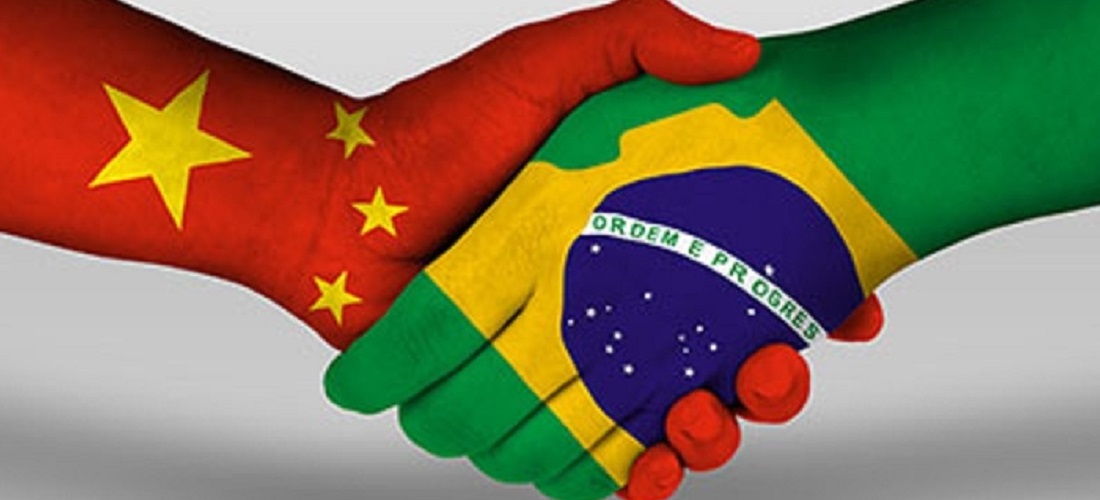
China hints at fast-approaching FTA with Mercosur
Jan, 09, 2023 Posted by Gabriel MalheirosWeek 202302
China says it is ready to negotiate a free trade agreement (FTA) with Mercosur or separately with any member of the bloc. This contentious topic is unlikely to be left out of the visit that President Luiz Inácio Lula da Silva plans to make to China in the near future.
During the 20th Congress of the Chinese Communist Party in October, a report presented by President Xi Jinping highlighted the Chinese strategy of seeking “greater integration into the global industrial chain and supply chain and (continue) to promote trade liberalization and facilitation of investments.” To that end, the country plans to negotiate “high standard free trade agreements” with its trading partners.
At the end of November, during the review of Brazil’s trade policy at the World Trade Organization (WTO), Chinese Ambassador Li Chenggang noted that Brazil concluded several free trade agreements and either renewed or started new negotiations, giving Beijing a message: “China believes it is essential to improve Brazil’s regional integration and export diversification. In this regard, China encourages Brazil to play an active role in expanding Mercosur’s network of regional trade agreements with key trading partners.” He also recalled that China has been Brazil’s biggest trading partner since 2009, the biggest market for Brazilian exports, a significant source of imports, and a vital contributor to the Brazilian trade surplus.
Asked to comment by the Valor press agency, the Chinese Ministry of Commerce (Mofcom) responded bluntly: “This means that China is willing to negotiate a free trade agreement (FTA) with Mercosur as a whole or an FTA with any member of Mercosur.”
Beijing has already signed 22 free trade agreements, including with Chile and Peru in South America, as well as another ten that are still being negotiated and eight “under consideration,” including one with Colombia. China also conducted a feasibility study in collaboration with Uruguay, which would result in the demise of Mercosur as a customs union. Beijing would be better off diplomatically negotiating with Mercosur as a whole. However, it confirms plan B, which is to negotiate separately.
Diplomat and economist Tatiana Rosito, now Secretary of International Economic Affairs at the Ministry of Finance, cites a 2019 Ipea (Applied Economic Research Institute) study that argues that a FTA with China would bring “unequivocally positive results for the Brazilian economy in terms of GDP gains, investment, exports, and imports. The trade balance would be a little worse, but there would be a significant reduction in the aggregate price level and an increase in the degree of openness of the economy.”
See below Brazil’s top exports to China in the first eleven months of 2022. The data is from the DataLiner business intelligence service.
Top exports to China | Jan 2022 – Nov 2022 | WTMT
Source: DataLiner (click here to request a demo)
However, such an analysis is not a consensus in the industry. “I don’t know of any segment [in Brazil] that, first of all, has a large enough output, and second, that has the appetite to take the risk of increasing business in a market of that size. China is not a market to sell surpluses. Distributors aren’t interested in small volumes,” says Marcos Caramuru, former ambassador of Brazil to China (2016-2018).
Source: Valor Econômico
To read the full original reporting, please visit: https://valor.globo.com/brasil/noticia/2023/01/09/china-acena-com-acordo-de-livre-comercio-com-mercosul.ghtml
-
DW 2019 EN
Aug, 05, 2019
0
DatamarWeek 06 August 2019
-
Economy
Oct, 01, 2024
0
EU-Mercosur agreement to be finalized this year, says Lula
-
Ports and Terminals
Oct, 17, 2024
0
Itapoá Port announces Phase Four of its Expansion at some R$ 500 million
-
Shipping
May, 03, 2024
0
Yemen’s Houthis say they will target ships heading for Israel anywhere within range

